The one constitutionally mandated occasion on Inauguration Day is for the president-elect to take the oath of office. However on the primary Inauguration Day, in 1789, George Washington did one thing else.
Each president since has adopted his instance and delivered an inaugural tackle as a part of the nationwide celebration.
These addresses are greater than only a collection of particular person speeches. Rhetoric students Karlyn Kohrs Campbell and Kathleen Hall Jamieson argue that every inaugural tackle will not be merely marking one stage within the ritual of political transition. Every can be a part of a style that has traits which, at some stage, are anticipated and understood by audio system and audiences. There have been 59 inaugural addresses, beginning with Washington, and whereas they might have differed in type and even particular topics, just about all characteristic these traits, which vary from calls to unify the nation to setting forth political ideas.
The political historical past collections on the Nationwide Museum of American Historical past, the place I’m a curator specializing within the history of presidential campaigns and campaign rhetoric, embrace a number of objects that illustrate these traits.
Exploring the style of inaugural addresses by quotations and objects from the previous may also help listeners higher perceive the opening speech of a brand new administration, the primary act in a job that started with the taking of the oath.
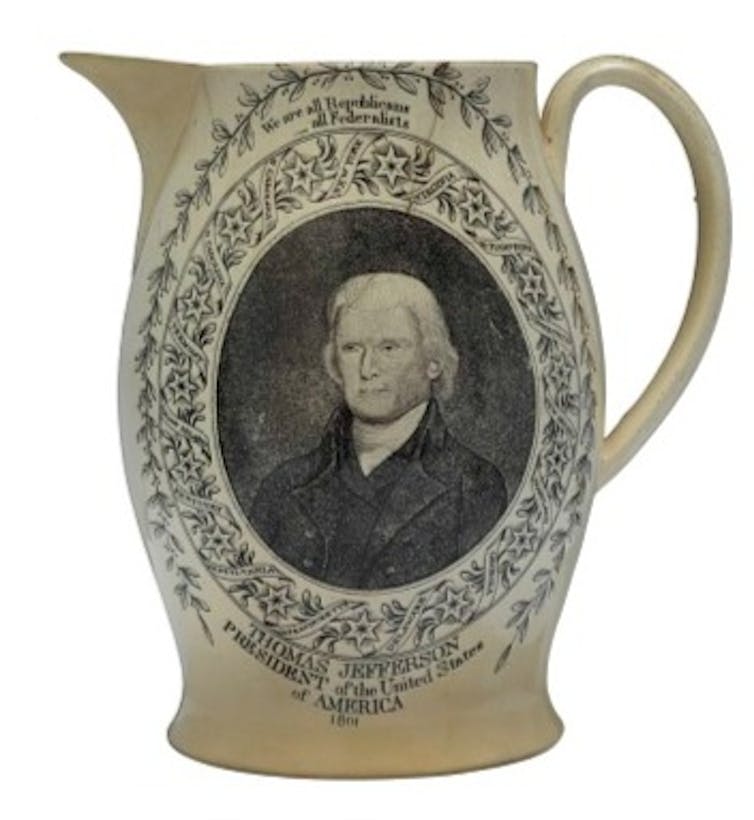
(Re)Unification of the viewers
Inaugurations function the transition level between the competitors of a marketing campaign and the wants of an administration starting to control. For the viewers to correctly fulfill their position as witnesses to this investiture of energy, they should be unified and reconstituted as “we the individuals.”
Within the phrases of political scientist Lee Sigelman, these speeches are “actually brimming with verbal tokens of unity.”
There are references to our founders, our nation and the longer term we face. In 1957, Dwight Eisenhower spoke of the needs “to which we, as a people, are pledged,” and Benjamin Harrison referred to as his 1889 inaugural second a “mutual covenant” between himself and the individuals. George W. Bush in 2001 united his listeners, saying, “Individuals are beneficiant and powerful and respectable, not as a result of we consider in ourselves however because we hold beliefs beyond ourselves.”
Thomas Jefferson’s first inaugural in 1801 might have been probably the most specific: “We now have referred to as by totally different names brethren of the identical precept. We’re all Republicans, we are all Federalists.”
Reaffirmation of nationwide values
New presidents should additionally set up their {qualifications} for the workplace by demonstrating they perceive and can protect the shared values which are key to what Invoice Clinton in 1993 referred to as “the very idea of America.”
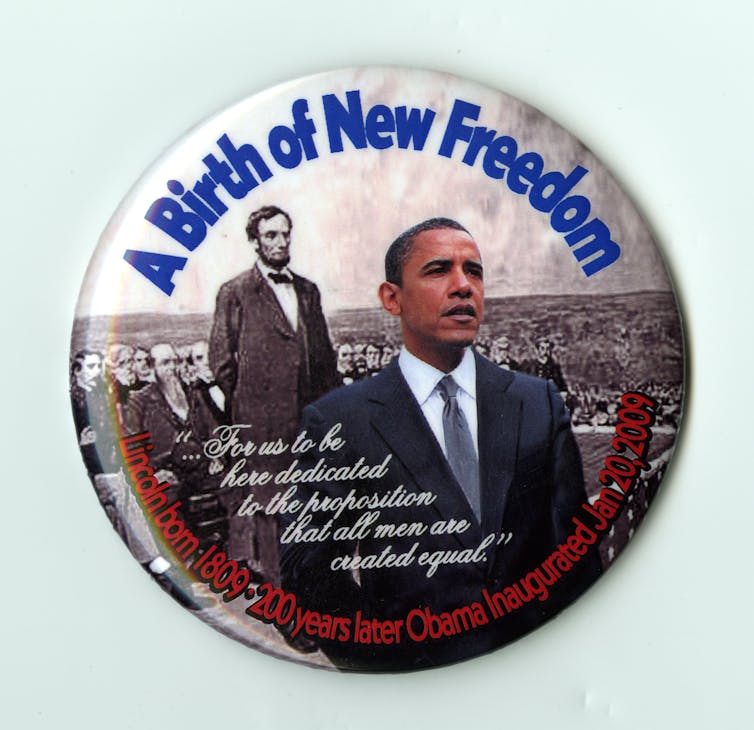
These conventional values are expressed in phrases similar to freedom, liberty, democracy and braveness. In 1981, Ronald Reagan reminded the viewers, “Freedom and the dignity of the person have been extra obtainable and guaranteed right here than in any other place on Earth. Jimmy Carter in 1977 summarized these values into “our perception in an undiminished, ever-expanding American dream.”
Setting forth political ideas
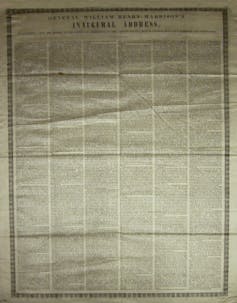
Not like many different presidential addresses, most notably the State of the Union, the inaugural doesn’t advocate particular laws however somewhat articulates extra normal philosophies that can information a brand new administration. When insurance policies are provided, they’re much less a name for motion than an indication of a president’s dedication to the democratic system.
In 1845, James Polk promoted his “plain and frugal” financial plans as a result of he mentioned a nationwide debt “is incompatible with the ends for which our republican Government was instituted.” Herbert Hoover mentioned that the insurance policies he listed in his 1929 tackle can be examined towards the “beliefs and aspirations of America.”
Even William Howard Taft, whose 1909 inaugural was among the many most coverage particular, framed his concepts with respect to the “correct” position of the federal authorities “in what it could and must accomplish for its people.”
Enacting the presidential position
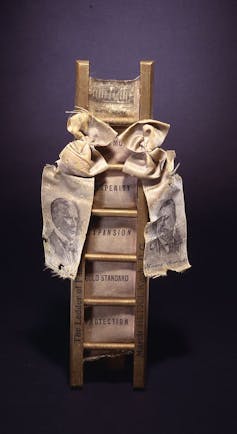
Candidates give speeches which are, for apparent causes, partisan and self-promoting. However when the marketing campaign ends and governing begins, presidents should reveal an understanding of their position inside the broader system.
In his first inaugural in 1933, Franklin Roosevelt moved out of marketing campaign mode and acknowledged the constraints on his “management of frankness and vigor.” He pledged to depend on his “constitutional duty” to work with Congress.
Rhetoric students Campbell and Jamieson add that these speeches should additionally enact the “public, symbolic position of president of all of the individuals” by revealing traits similar to humility and reliance on a better energy. A typical instance is discovered within the conclusion of Warren Harding’s 1921 tackle: “I settle for my half with single-mindedness of objective and humility of spirit, and implore the favor and steering of God in His Heaven. With these I’m unafraid, and confidently face the future.”
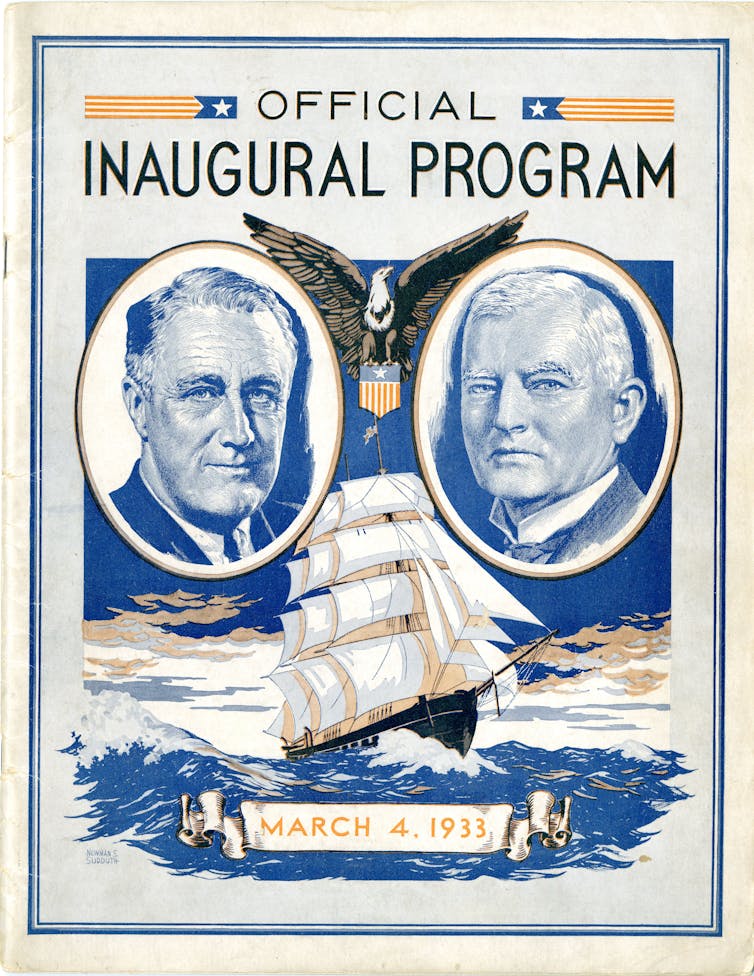
Fulfilling ceremonial expectations
Due to the celebration that surrounds them, inaugural addresses are anticipated to mirror stylized, ceremonial talking. Such speeches try to succeed in past the instant state of affairs to evoke timeless themes utilizing memorable phrases.
In 1961, John Kennedy challenged Individuals throughout the a long time to “Ask not what your nation can do for you – ask what you can do for your country.” The phrases “mystic chords of reminiscence” and “better angels of our nature,” among the many most memorable phrases in presidential rhetoric, have been utilized to numerous conditions since Abraham Lincoln first uttered them in 1861.
Not all inaugural addresses obtain greatness. Some have been fairly forgettable. However every of them has tried to satisfy these expectations, serving to to maintain what Franklin Roosevelt in his second inaugural referred to as “our covenant with ourselves.”![]()
(Writer: Claire Jerry, Political Historical past Curator, Smithsonian Institution)
(Disclosure Assertion: Claire Jerry doesn’t work for, seek the advice of, personal shares in or obtain funding from any firm or group that may profit from this text, and has disclosed no related affiliations past their tutorial appointment)
This text is republished from The Conversation beneath a Artistic Commons license. Learn the original article.
(Aside from the headline, this story has not been edited by NDTV workers and is printed from a syndicated feed.)
